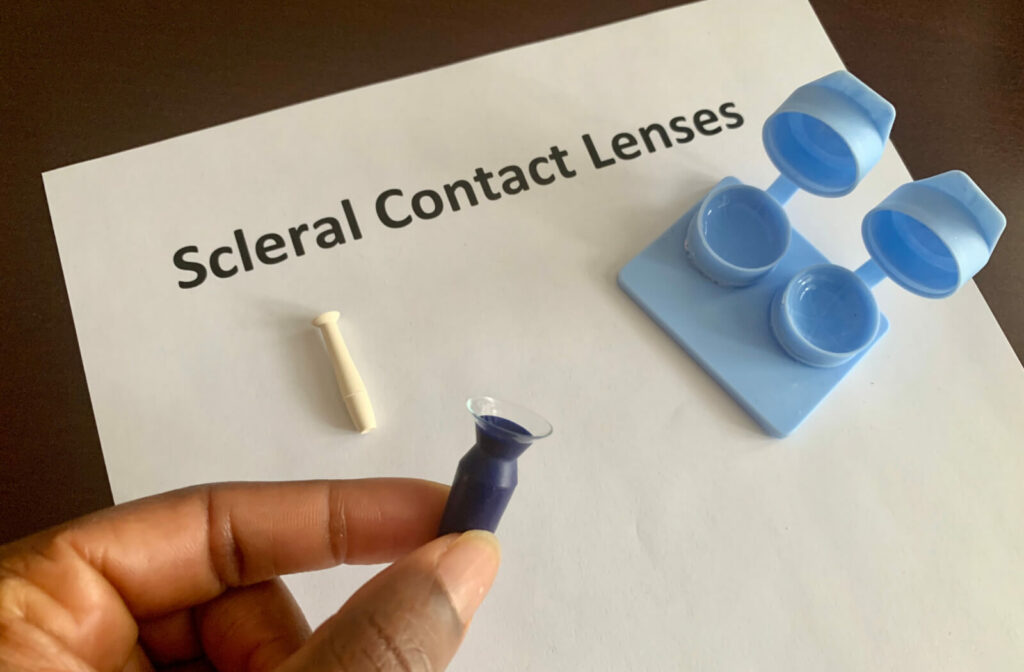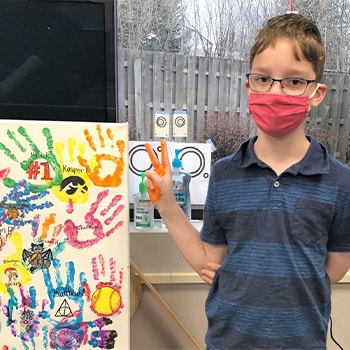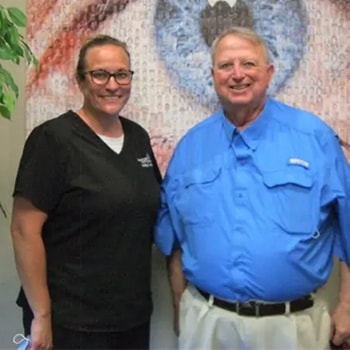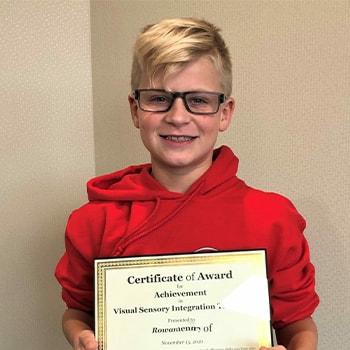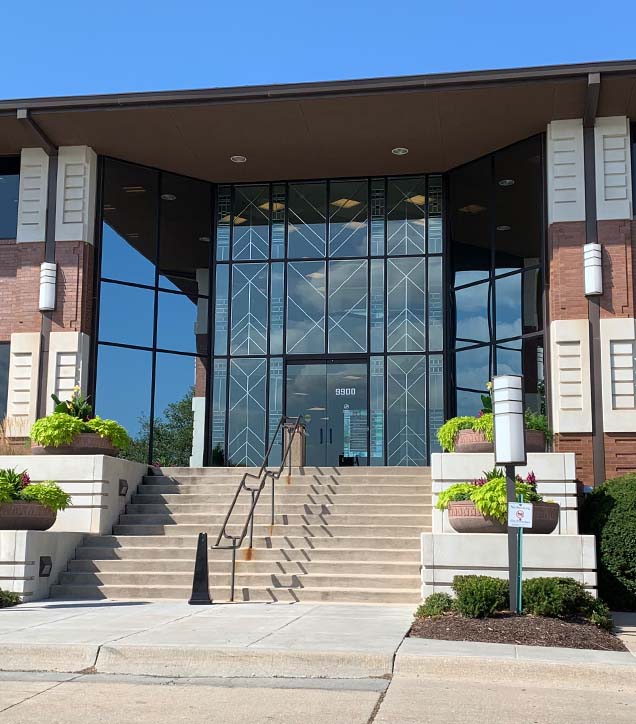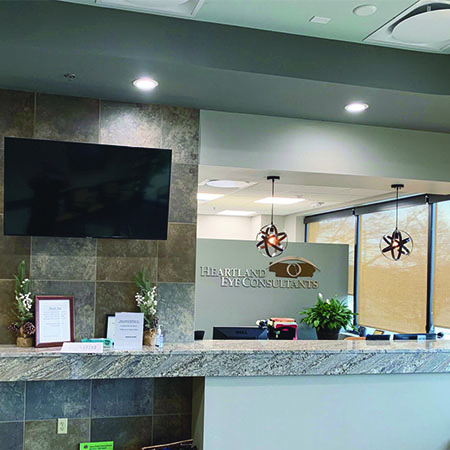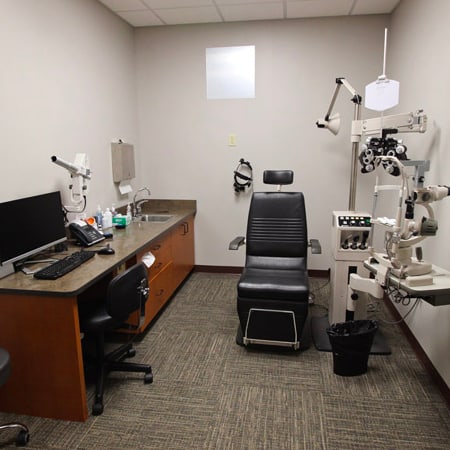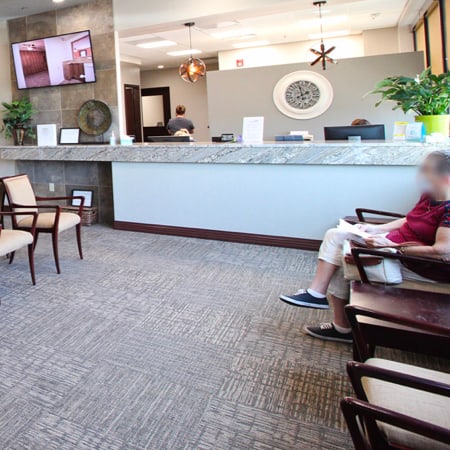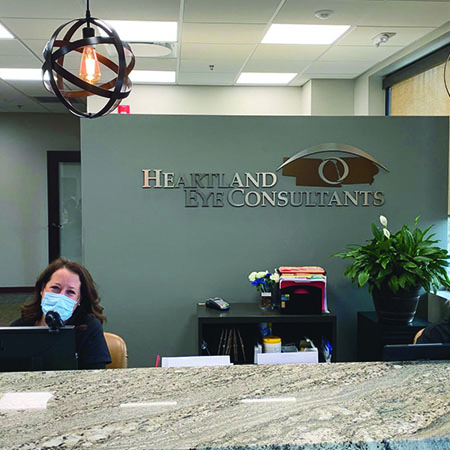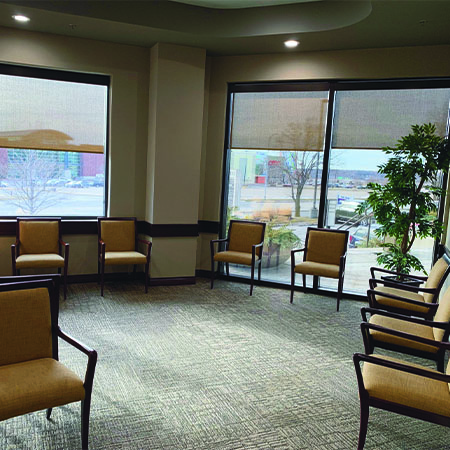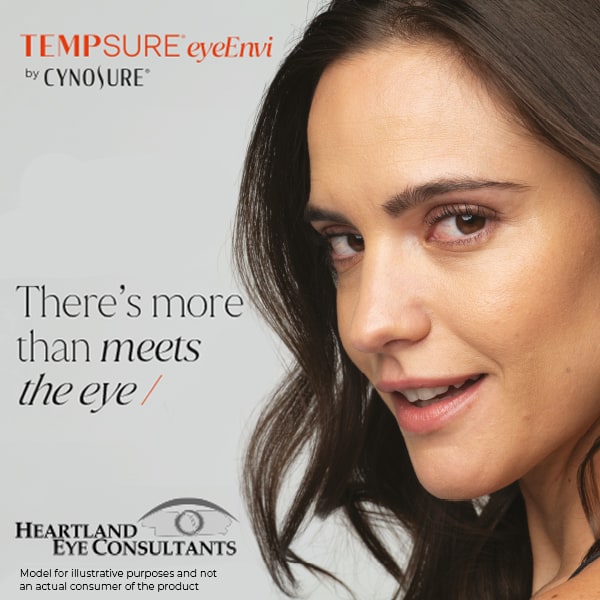If you’ve ever felt a gritty, burning, or sandy sensation between your eyelid and the surface of your eye, you may have experienced dry eye syndrome.
This common optical condition can cause feelings of irritation and discomfort and affects millions of people, leading to questions about how to treat it—like the use of specialty contact lenses.
Scleral lenses can help treat dry eye. These lenses rest on the whites of your eyes and arch over the cornea, leaving a reservoir between the lens and cornea. This allows tears to gather in this reservoir and help keep your eye hydrated and moisturized, reducing the symptoms of dry eye syndrome.
What Is Dry Eye?
Dry eye, known clinically as dry eye syndrome, is a common condition that affects the surface of your eyes. This condition causes feelings of dryness, grittiness, and burning between your eye and eyelid and can lead to:
- Swelling
- Redness
- Irritation
- Discomfort
- Blurry vision
This occurs when your eyes are struggling to produce enough tears or aren’t producing tears of high enough quality to do their job properly.
When your eye is healthy, it produces these tears to lubricate and hydrate your eye while flushing out most external debris. They’re made of 3 layers:
- The mucus layer on the inside of the tear film. This spreads the tear evenly across the surface of the eye while keeping it attached to the eye’s surface.
- The water layer, which is the middle layer and makes up most of the tear. This helps clean the eye and flush away debris and contaminants.
- The oil layer, which makes up the outside of the tear and keeps it from evaporating too quickly.
It’s common for a problem to develop with one of these layers, which leads to your tears evaporating too quickly and the eye drying out. Or, if the eye simply doesn’t produce enough tears, it can’t stay hydrated, leading to dry eye syndrome.

What Are Scleral Lenses?
Scleral lenses are a special form of contact lenses. Usually, your contacts rest across the surface of your eye, making direct contact with most or all of the surface of the cornea. However, this can reduce how much oxygen reaches the eye and contribute to the development of dry eye syndrome.
Scleral lenses aim to avoid this problem. They’re shaped differently than standard contact lenses. Rather than touching the entire surface of your eye, they rest on the sclera of your eyes or the white of your eyes. They arch over the cornea, avoiding contact with it, to meet the sclera on the other side.
Typically made of a gas-permeable material, these lenses use this extra space between the cornea and lens as a reservoir of sorts for your tears. This helps keep your eye hydrated properly.
Scleral Contact Lenses for Dry Eye
Due to their shape, scleral lenses can be an excellent approach to treating dry eye. Since they have a tear reservoir between the lens and cornea, these lenses can keep your eye hydrated and moisturized.
They can be beneficial for treating several eye conditions but are particularly useful for people with irregular corneas. Since the scleral lens arches over the cornea in a spherical shape, it helps refract light where an incorrectly shaped cornea can’t. This can help correct high astigmatism, corneal scarring, and corneal dystrophies such as keratoconus.
However, it’s important to remember that the benefits vary on a case-to-case basis. It’s important to consult with your optometrist to determine whether or not scleral lenses are a suitable approach to treating your dry eye.
What Causes Dry Eye?
Problems with tear production can be caused by a wide range of potential factors. One of the more common causes is a problem developing with the meibomian gland—the gland near the eye that produces the oils for your tears. If there aren’t enough oils being produced and applied to your tears, the tear film isn’t properly protected, leading to early evaporation and feelings of dryness on the surface of your eye.
However, dry eye can also be caused by other factors, like:
- A dry or humid environment
- Medical conditions like Sjogren’s syndrome, diabetes, rheumatoid arthritis, and even thyroid problems
- Spending time in a smoky or dusty environment
- Recent surgery near or on the eyes
- Allergies
This condition is also common among people who spend a great deal of time focusing on things near their faces, like a computer screen or small-printed text. This occurs due to the tendency to blink less when focusing on reading or writing, leading to the eyes drying out.
How Is Dry Eye Treated?
Since dry eye syndrome is a common condition, there are several ways it can be treated with the help of your optometrist.
Typically, dry eye syndrome can be addressed through the use of prescription eye drops, artificial tears, and many other dry eye therapies. Dry eye specialists use dry eye technology, aiming to properly diagnose your condition and find the cause of your dry eye.
They may even recommend IPL therapy (intense pulsed light) as a form of treatment as well as in office heat treatments. This dry eye therapy stimulates your meibomian glands, which helps your eyes produce more oils for the tears. This helps avoid the early evaporation of your tear film and reduces dry eye syndrome.
In many situations, though, an optometrist may recommend lifestyle changes. They may even advise the use of specialty contact lenses—like scleral lenses—to help reduce the symptoms of dry eye.
Get Help for Your Dry Eye
At Heartland Eye Consultants, we take an extra step to treating your dry eye syndrome. We’re one of the private practices in the United States that can create a computer-designed customized scleral lens for your unique eye needs.
This helps give us a precise and accurate approach to designing your lens and gives you a valuable resource for treating your dry eye syndromes. To learn more about scleral lenses and how they can help your dry eye syndrome, book an appointment with us today!


